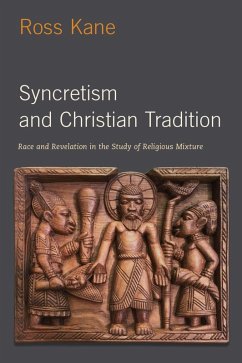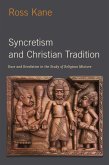Syncretism has been a part of Christianity from its very beginning, when early Christians expressed Jesus' Aramaic teachings in the Greek language. Defined as the phenomena of religious mixture, syncretism carries a range of connotations. In Christian theology, use of syncretism shifted from a compliment during the Reformation to an outright insult in the twentieth and twenty-first centuries. The term has a history of being used as a neutral descriptor, a pejorative marker, and even a celebration of indigenous agency. Its differing uses indicate the challenges of interpreting religious mixture, challenges which today relate primarily to race and revelation. Despite its pervasiveness across religious traditions, syncretism is poorly understood and often misconceived. Ross Kane argues that the history of syncretism's use accentuates wider interpretive problems, drawing attention to attempts by Christian theologians to protect the category of divine revelation from perceived human interference. Kane shows how the fields of religious studies and theology have approached syncretism with a racialized imagination still suffering the legacies of European colonialism.
Syncretism and Christian Tradition examines how the concept of race figures into dominant religious traditions associated with imperialism, and reveals how syncretism can act a vital means of the Holy Spirit's continuing revelation of Jesus.
Dieser Download kann aus rechtlichen Gründen nur mit Rechnungsadresse in A, B, BG, CY, CZ, D, DK, EW, E, FIN, F, GR, HR, H, IRL, I, LT, L, LR, M, NL, PL, P, R, S, SLO, SK ausgeliefert werden.









